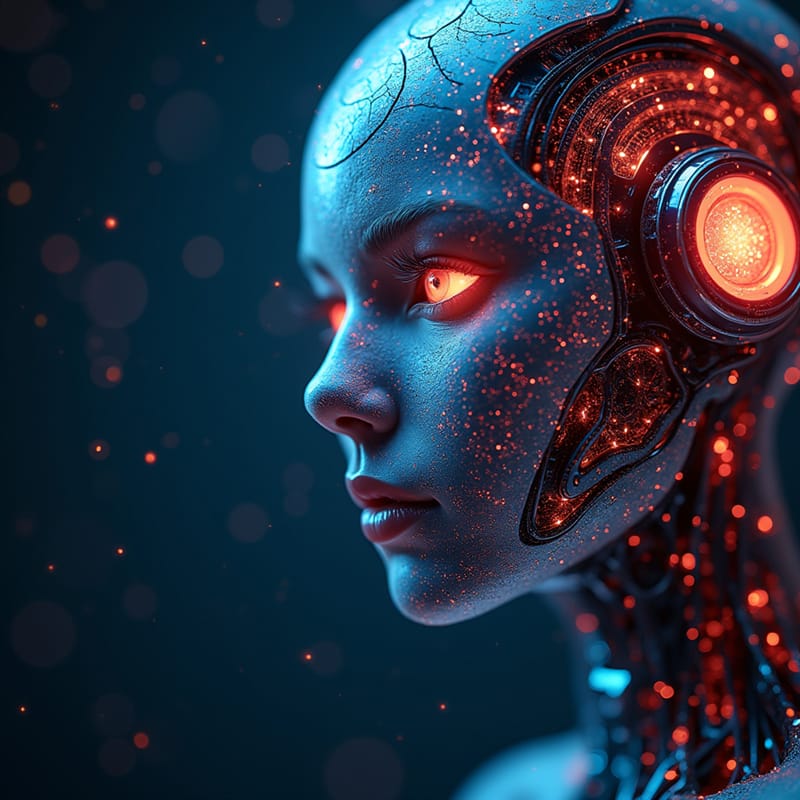AI and Photography: A New Era of Creativity, Ethics, and Innovation

The Transformative Influence of AI on Photography Towards 2025
The Transformative Influence of AI on Photography Towards 2025
The fusion of artificial intelligence (AI) and photography marks a pivotal shift towards 2025, driving significant changes in the creation, consumption, and monetization of imagery. As AI technologies, particularly in computer vision and deep learning, evolve, photographers are navigating both unprecedented creative opportunities and emerging challenges. This article delves into the transformative influence AI exerts on photography, exploring automated editing, generative art, evolving roles, ethical considerations, and the economic landscape shaping future photographic endeavors.
The Evolution of AI in Photography
The ongoing evolution of AI, especially advancements in computer vision and deep learning, is reshaping the photography industry and will continue to do so as we approach 2025. These technologies enhance image quality and enable more efficient content creation. AI tools can now analyze and adjust images based on aesthetic trends, allowing faster turnaround without compromising quality.
Photographers find themselves blending traditional techniques with AI innovations, which can create tension but offer opportunities for artistic growth. Established methods maintain a unique voice; however, mastering AI tools is necessary to stay competitive. This duality exemplifies the industry's shift where photographers must adopt roles akin to tech-savvy digital artists, balancing creativity and technological fluency.
As AI integrates into the workflow, the consumption of photographic content evolves. Consumers demand instant gratification, facilitated by AI-driven processes that deliver timely and personalized images. This requires photographers to be adaptable and innovative, transforming their capture and presentation of visual narratives. Thus, the photography landscape blends art and technology, challenging professionals to continuously evolve in this AI-driven future.
AI Automated Image Editing
AI-powered image editing tools revolutionize photographers' workflow, improving efficiency through automated processes like retouching and color correction. Software such as Adobe Photoshop's Sensei and Luminar AI streamline tasks, reducing manual editing time and enhancing image quality for photographers to focus on creativity rather than tedious adjustments.
Numerous case studies illustrate successful AI integration in professional editing workflows. For example, a commercial photographer using automated retouching tools reported a reduction in editing time by over 50%, allowing more client work and increased revenue without compromising quality. Advances in color correction algorithms promote brand coherence in visual marketing.
Generative AI and the Creation of Imagery
The advent of Generative Adversarial Networks (GANs) signifies a transformative shift in imagery creation, producing hyper-realistic synthetic images. This raises implications for photographers as AI-generated content could lead to market saturation, affecting the value of unique photographic work.
Despite these challenges, GANs offer exciting opportunities in media and advertising. They enable cost-effective tailored content creation. Examples include NVIDIA's GauGAN transforming sketches into photorealistic artworks and Artbreeder allowing creative image blending.
As GAN technology matures, sectors such as gaming and advertising can leverage it for immersive storytelling, reimagining audience engagement. Photographers must adapt to find niches where human creativity excels amidst AI-generated visuals.
Reimagining the Photographer's Role
Navigating Ethical and Legal Challenges
The rise of AI in photography addresses ethical and legal challenges, particularly concerning image generation and alteration. Questions over copyright and image authenticity require evolving legal frameworks as current regulations often lag behind AI's creative role.
AI-generated images blur distinctions between human and machine creation, necessitating guidelines to uphold art integrity. Photographers must responsibly navigate these challenges, emphasizing transparency and AI content labeling.
To address concerns, ethical guidelines should be developed, outlining AI technology use in photography, ensuring photographer originality, and respecting image subject rights. Promoting ethical awareness ensures AI's potential is harnessed, preserving photography's foundational principles.
Conclusions
As we advance towards 2025, AI's transformative power in photography offers exciting opportunities and challenges. Photographers will evolve through creative collaboration with technology, navigating complex ethical and legal waters. Automated processes promise efficiency, while generative AI redefines content creation. The industry must adapt, emphasizing ethical practices and embracing emerging trends for sustained growth. This intersection of technology and artistry heralds a new era, blending traditional skills with AI innovation to forge the future of photography.
Follow me on Facebook | X (Twitter)